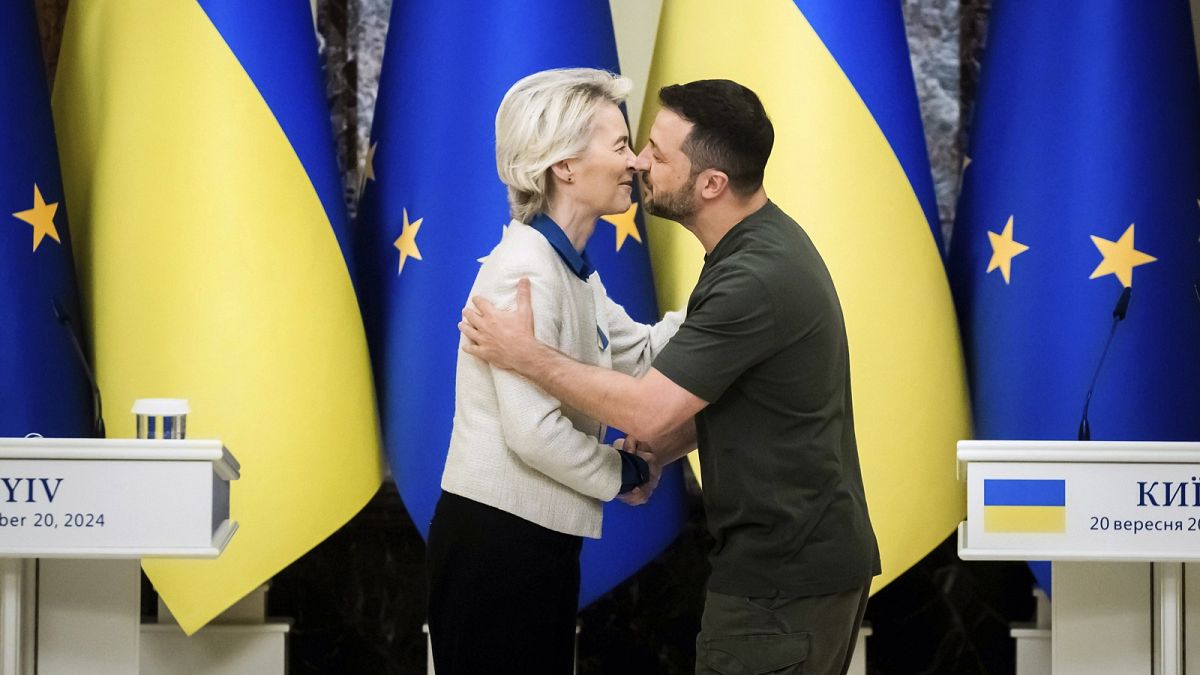The European Union has committed to raising a €35 billion loan to support Ukraine in plugging the hole in its state budget and procuring more weapons amidst a renewed Russian offensive. This initiative was announced by Ursula von der Leyen during her visit to Kyiv, promising maximum flexibility on how the funds will be utilized to aid the country’s struggling economy and military efforts. The EU’s contribution is part of a larger $50 billion plan pledged by G7 allies in June, with the original idea being for EU and US to contribute $20 billion each, while other allies like Canada, the UK, and Japan would provide the remaining funds.
However, the G7 initiative has faced challenges as technical talks between EU and US officials have bogged down the progress. Concerns have arisen over Hungary, the most Russia-friendly member state, potentially wielding its veto power to derail the renewal of sanctions on Russia’s frozen assets, which are being used as collateral for the loan. This risk threatens to leave Western allies shouldering the repayments with their national budgets. To address these issues and increase predictability, the Commission presented member states with options to renew sanctions for varying periods, but Hungary has delayed progress until after the US presidential elections on 5 November.
Amidst these challenges, the EU is taking steps to escalate its commitment to Ukraine by increasing its participation to €35 billion to allay concerns and accelerate the process. This move aims to ensure the EU can meet its share of the $50 billion plan and prompt other G7 allies to contribute their portions. With most of Russia’s frozen assets located in EU territory, the Commission plans to set up a mechanism to channel profits annually, ultimately aiding in servicing repayments for the loan. Von der Leyen emphasized the importance of holding Russia accountable for the destruction caused and stated her confidence in other allies stepping up to fulfill their commitments.
The lending proposal put forth by von der Leyen hinges on approval by a qualified majority of member states, eliminating the threat of Hungary’s potential veto. The European Parliament will also play a role in the approval process, with a deadline set before the end of the year to ensure gradual disbursement through 2025. Additionally, Brussels has proposed renewing sanctions on assets every 36 months, with unanimous agreement required for this key change. EU officials maintain that the loan can proceed even if Hungary obstructs the extension, as the bloc’s common budget serves as the ultimate guarantee.
As part of the EU’s efforts to support Ukraine, a €160 million assistance package has been announced, designed to repair power plants and boost renewable energy sources with backing from Russia’s frozen assets. The initiative aims to provide 2.5 Gigawatts of capacity while leveraging the opportunity to utilize windfall profits for the country’s benefit. The focus remains on urgent action and collaboration to address the pressing challenges facing Ukraine amidst the ongoing conflict and humanitarian concerns. By mobilizing resources and coordinating efforts, the EU seeks to provide stability and assistance to Ukraine as it contends with the impacts of the conflict and works towards its recovery and resilience.











